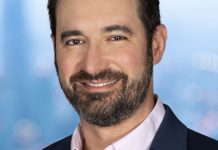Could you give us an overview of the company?
Philip Seeger, our president and CEO, and Ben Petersen, the company’s COO, founded Medcor in 1984. They were both certified fire and rescue paramedics, as I was, and we ran an ambulance company together. A significant number of the calls we answered involved taking employees who were sick or injured at work to a clinic or hospital, and it soon became apparent that the vast majority of those visits really weren’t necessary. In fact, it was kind of a paradox in that you had to take the person to the doctor to see if they needed one in the first place, which resulted in an insurance claim being filed.
Many of these injuries could’ve been taken care of with simple first aid, and other complaints such as shortness of breath — sometimes signaling a heart attack — could have been detected much earlier. On one end of the spectrum serious things were being missed, and at the other end people were overreacting to fairly simple injuries. So we saw a niche that needed to be filled, and that’s what we’ve been doing for nearly three decades now.
Tell us about the services you provide on wind farm construction projects.
We view our clients as strategic partners, and they are everything from manufacturing facilities to government operations to entertainment venues. We operate clinics at Yellowstone National Park, for instance, and on pipeline projects. So we have a lot of experience providing occupational health services, and we immediately saw how well it would apply to wind farms under construction. Since the early days of the company, we have been developing and refining medical protocols with our physicians that are specifically focused on workplace injuries, no matter the setting. We have guidelines for how to address a cut, a concussion, or sudden pain in the chest or stomach. We know what to treat, how to treat it, and when it’s time to transport the employee to a hospital. We have also developed software to create electronic records documenting things like when someone was hurt, how, what the response was, and who the supervisor was at the time, which is great information for the company’s safety personnel.
Speaking specifically about wind farm projects, we work with the owner or construction company to determine exactly what their needs will be, taking the size of the farm, the terrain, the number of employees, and even the site’s proximity to full-scale hospitals into consideration. Then we can suggest different on-site trailer configurations to meet their requirements. We also discuss who will staff the clinic, and what they will do in addition to providing emergency medical services. A huge wind farm employing thousands of people that’s nowhere near a major city might call for a physician assistant to be on staff, while a registered nurse or paramedic would be adequate for most other operations.
All of our employees are OSHA certified for construction or general industry, depending on what’s called for, and they know when an incident is OSHA recordable. They can also conduct drug testing, audiometrics, and even respirator fit tests. So we’re not just sitting around waiting for an accident to happen, we’re an active member of the project doing our part to make it safe and productive, and to help our clients to avoid incurring workers’ comp claims.
How do you handle transportation, both on location and to hospitals when necessary?
We do a lot of advance work before the staff arrives at the clinic, as you can imagine. We familiarize ourselves with the available medical resources and reach out to ambulance and helicopter transport services to handle all the details in advance. As for how we access the workers who need our help, clinics are equipped with SUVs so that our staff can go to the site of the injury or complaint, which is especially important when a person has a broken limb or an open wound. Providing emergency medical assistance is a serious business, and we have the skills and experience we need to keep our partners’ employees safe and the project moving forward.
To learn more: Call (815) 363-9500 or go to www.medcor.com.



























